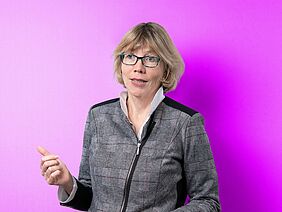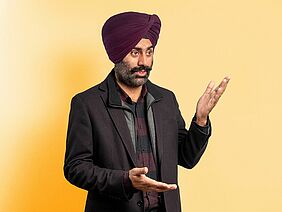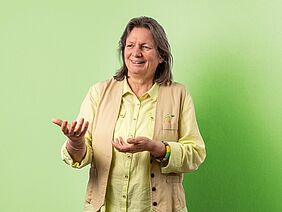What are the benefits of organics in the tropics?
Beate Huber: Based on our data from Kenya, India and Bolivia, we can clearly say that the level of organic farmers’ economic security in the tropics can definitely match that of conventional farmers. Moreover, organic agriculture brings distinct advantages when other factors such as environmental protection or food safety are taken into account. However, if adherence to organic standards does not go beyond the minimum baseline, the benefits of organic farming are lost and farms usually produce significantly poorer yields. This is because the more the forces of nature are utilised, the better the system’s performance and environmental benefits. An example would be the higher level of biodiversity resulting from the cultivation of a greater number of different crops.
Gurbir Bhullar: Our latest project in the Philippines exemplifies this. The area was a very beautiful forested, hilly region. Today, the area has been cleared and converted into a conventional maize monoculture with high levels of chemical inputs. Within a few years, the soil had eroded and the local drinking water had become polluted with chemicals. Yes, the conversion to organic agriculture would get rid of these chemicals. But in this case, it would not be sufficient to simply switch to organically grown maize. The entire system needs to be changed. Permaculture, agroforestry or other agroecological systems would be called for, for example.
Is agroforestry the new organics?
Monika Schneider: That's a good point, especially when it comes to crops like cocoa or coffee. For these crops, agroforestry systems would be relatively easy to implement, highly expedient, and also build on traditional systems. However, not all organic standards make it mandatory to implement these kinds of cropping systems. Organic certifiers and legislators should seriously consider whether it would be more prudent to include agroforestry systems in the standards or to continue to leave their adoption up to the producers.
So do we need new organic standards?
Beate Huber: For crops like cocoa and coffee this should definitely be given consideration. But we must not forget that in most places organic standards only have an impact on export crops such as cocoa, coffee or cotton. However, organics is also important for the many smallholders who are often too small for certification while actually producing about 80 per cent of the world's food. In our projects, we therefore work almost exclusively with smallholder families. Ultimately it's about them having enough to eat and being able to make a better living. It's not about them getting certified. Where organic farming fits into this, in terms of making a contribution, is a matter of assessment.
Monika Schneider: It is also important to not just raise the standard of living to a level that is barely above the poverty line as defined by the countries in question, because that is not enough to be a farmer and be proud of it. In Bolivia the government implements the concept of "well living", which aims incomes far above the international poverty lines. Organic farming then raises them up another notch. The fact that they are well organised, in cooperatives for example, is crucial. This is the case with our partner in Bolivia, El Ceibo. There, the cocoa farmers participate in the entire value chain and achieve better incomes as a result.
Further information
Contact
- Beate Huber
- Irene Kadzere
- Monika Schneider
Links
- fibl.org: Activity report
- fibl.org: Project website of the SysCom long-term trial
- fibl.org: SysCom wins international prize
Download
- fibl.org: Activity report
- fibl.org: SysCom synthesis report







